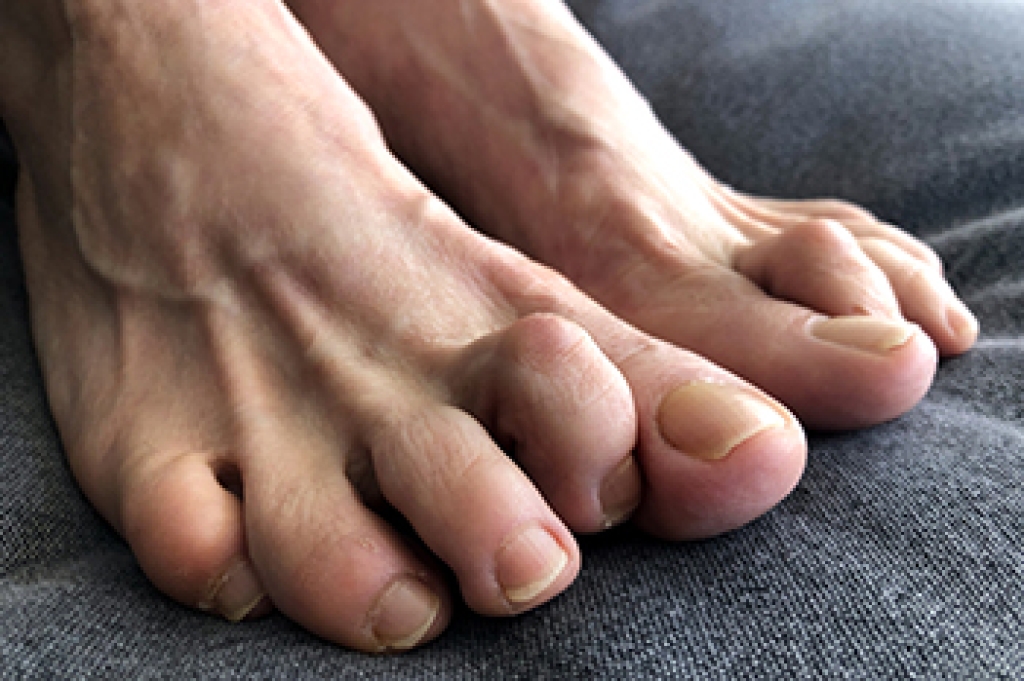
A hammertoe is a foot deformity where toes become bent at the middle joint, typically affecting the second, third, or fourth toes. A hammertoe worsens over time due to muscle imbalance, often the result of wearing ill-fitting shoes. Shoes that are too narrow or have high heels force the toes into a bent position. This causes friction, pain, and the development of corns or calluses. Symptoms can include swelling, redness, or difficulty straightening the toe. Certain non-surgical approaches may be effective in early stages of hammertoe formation. These include wearing properly fitted shoes with a roomy toe box to alleviate pressure and allow toes to spread naturally. Exercises to stretch and strengthen toe muscles also may provide relief. Pads or cushions can be helpful, and may help to prevent further irritation. When the affected joint becomes rigid and non-flexible, surgical options like tendon lengthening or joint fusion may be necessary. If you have developed a hammertoe, it is suggested that you schedule an appointment with a podiatrist for an exam and treatment options.
Hammertoe
Hammertoes can be a painful condition to live with. For more information, contact one of our podiatrists from Bergen Foot & Ankle. Our doctors will answer any of your foot- and ankle-related questions.
Hammertoe is a foot deformity that affects the joints of the second, third, fourth, or fifth toes of your feet. It is a painful foot condition in which these toes curl and arch up, which can often lead to pain when wearing footwear.
Symptoms
- Pain in the affected toes
- Development of corns or calluses due to friction
- Inflammation
- Redness
- Contracture of the toes
Causes
Genetics – People who are genetically predisposed to hammertoe are often more susceptible
Arthritis – Because arthritis affects the joints in your toes, further deformities stemming from arthritis can occur
Trauma – Direct trauma to the toes could potentially lead to hammertoe
Ill-fitting shoes – Undue pressure on the front of the toes from ill-fitting shoes can potentially lead to the development of hammertoe
Treatment
Orthotics – Custom made inserts can be used to help relieve pressure placed on the toes and therefore relieve some of the pain associated with it
Medications – Oral medications such as anti-inflammatories or NSAIDs could be used to treat the pain and inflammation hammertoes causes. Injections of corticosteroids are also sometimes used
Surgery – In more severe cases where the hammertoes have become more rigid, foot surgery is a potential option
If you have any questions, please feel free to contact our offices located in Fort Lee, NJ and Flushing, NY . We offer the newest diagnostic and treatment technologies for all your foot care needs.
